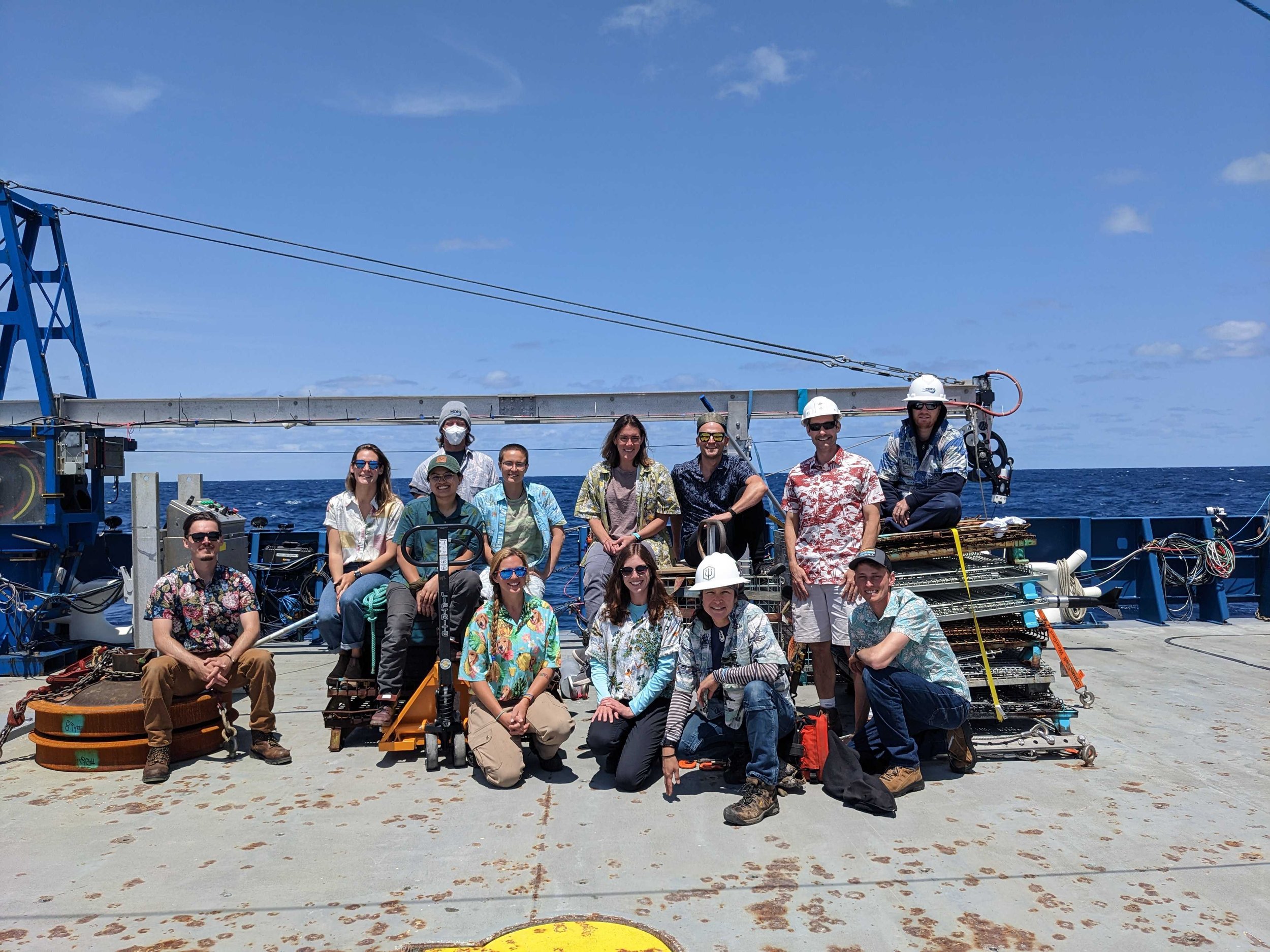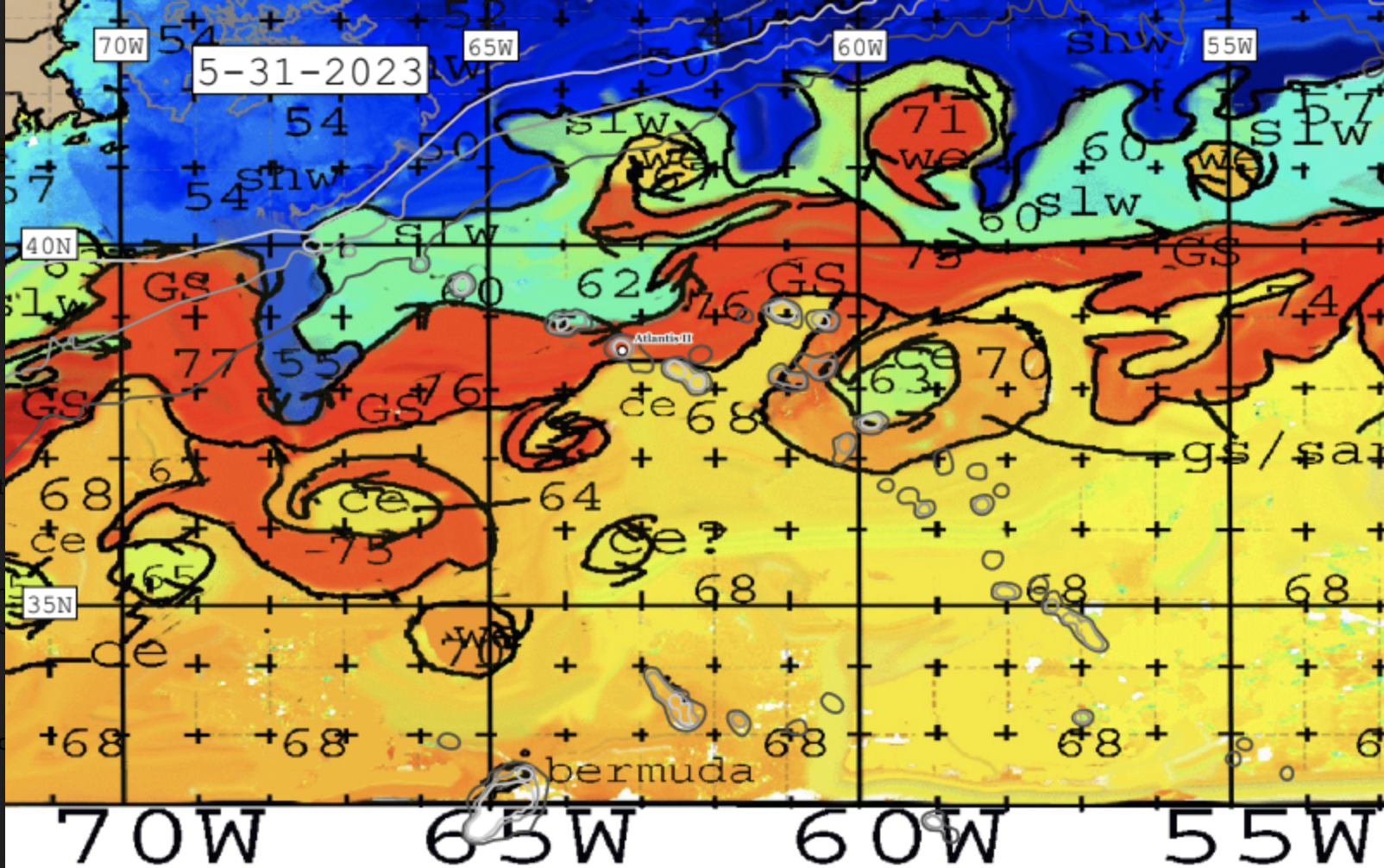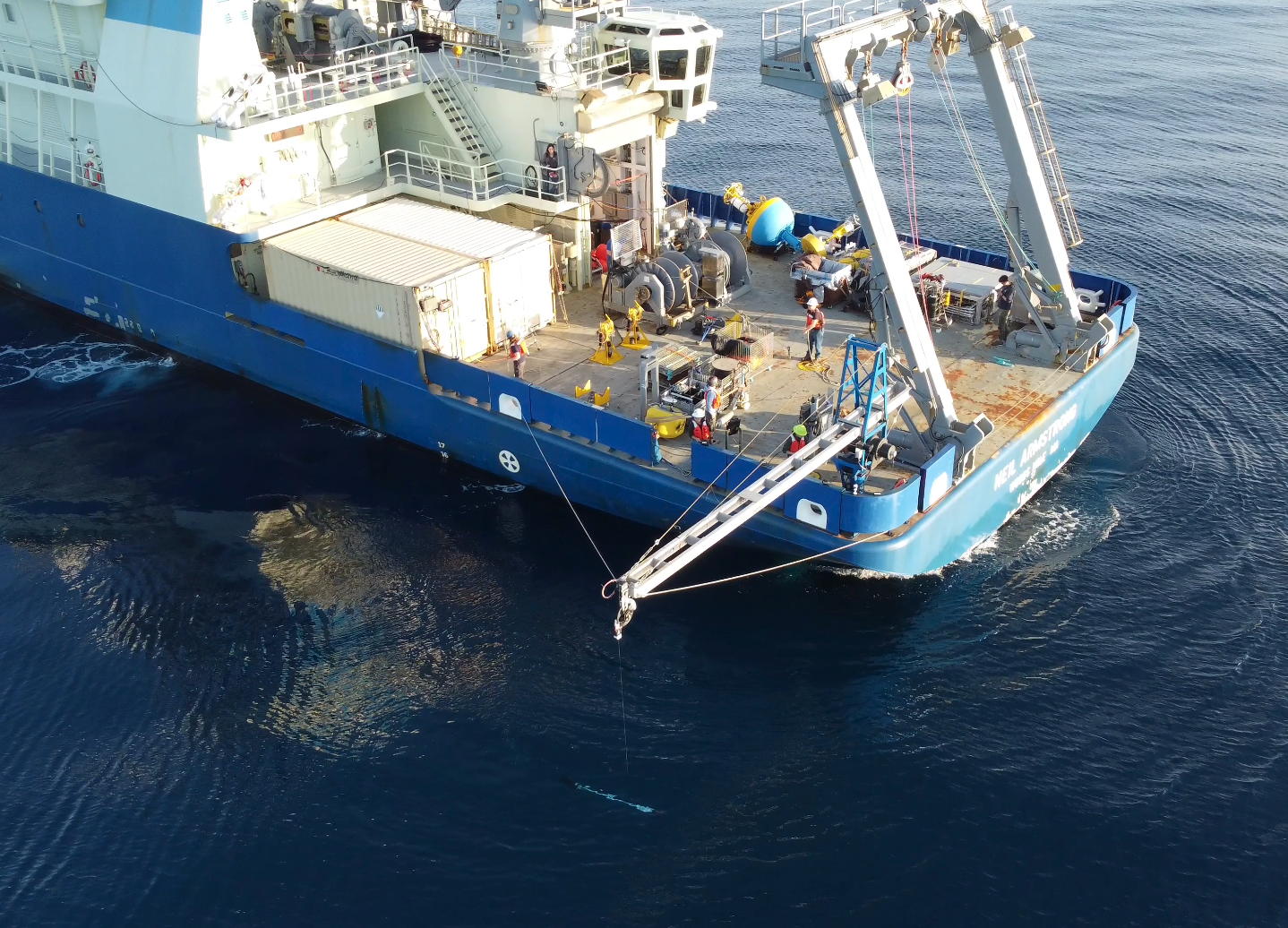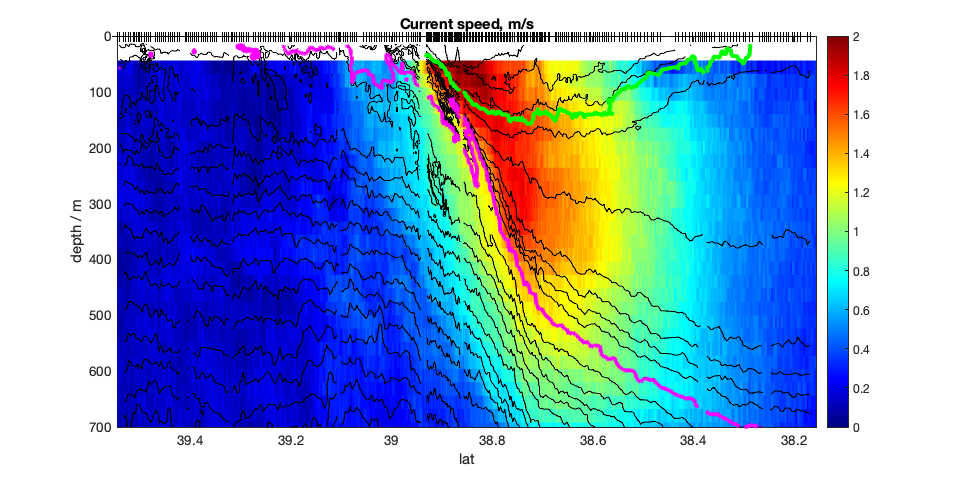Ahoy from the R/V Armstrong!
The Scripps Multiscale Ocean Dynamics (MOD) team is at sea with Bill Hodgkiss’s acoustics group and Luc Lenain’s air-sea group (both SIO) aboard leg 3, led by MOD’s Matthew Alford and Gunnar Voet, of the Office of Naval Research-funded New England Seamounts Experiment (NESMA). The goals are to understand sound propagation in the ocean, and how the Gulf Stream interacts with seamounts, which stick up nearly two miles from the three-mile-deep seafloor in the region. The way they mix, create wakes, and generate internal gravity waves has implications for how the ocean transports heat and dissipates its energy.
The Task Force Ocean - Seamounts team. Chief Scientist Alford (back, with mask) came down with COVID on day one of the cruise and had just emerged after having remained isolated in his stateroom for 9 days. Also pictured are Evan Harris, Helen Dufel, Charlotte Bellerjeau, Nicole Couto, Gunnar Voet, Jeremy Roswell, Arnaud Le Boyer, Sara Goheen, Becca McConnell, Gabriela Chavez and Luke Colosi.
We, some of the MOD group, have now been out here for 17 days, having deployed two moorings and our MOD group’s fast CTD and epsilometer, deployed from our high-speed electric MOD winch. We conducted one of the highest-resolution surveys of the Gulf Stream ever done, showing the very strong currents of the Gulf Steam and the sharply sloping temperature surfaces on both sides. These strong lateral undersea fronts can trap internal gravity waves known as near-inertial waves at their edges, which can lead to turbulence.
“Clark chart” (courtesy Jennifer Clark and Grace Jensen) showing the sea surface temperature in the North Atlantic on May 31, 2023. The Gulf Stream brings warm water (red) from lower latitudes, transporting tens of millions of tons of water northward each second. We are working atop the Atlantis II seamount, which is marked at about 38.5N, 63W.
Sure enough, our turbulence measurements along the same section confirm strong dissipation is occurring in those regions. We’re currently redoing the survey at even higher resolution with our specialized “epsi-fish” profiler in order to investigate further.
Aerial photo (photo credit: Croy Carlin) of the R/V Armstrong and the MOD winch with our fast CTD instrument in the water ready to begin a profile.
The acoustics and air-sea groups have been very busy and successful as well - we will let them report on their achievements separately. In the next few days we will recover the Waveglider and one of our moorings before heading home. The other mooring will deliver data for another year before we do it all again next year and recover it as well.
The Gulf Stream is part of the ocean’s blood stream, and it feels very exciting to be taking its pulse with these specialized tools aboard such a capable vessel as the R/V Armstrong. We are so lucky and grateful to be here with the Captain and crew of this amazing vessel, who have welcomed us warmly into their home and helped us make sure our instruments have stayed functional for this long and challenging but very successful expedition.
Current speed with temperature contours measured with the fast CTD showing the strong eastward currents of the Gulf Stream and the steeply sloping temperature surfaces associated with it (black lines; 13 degrees is green and 15 degrees is magenta).
This figure shows turbulence (specifically, the logarithm of the thermal dissipation rate) measured with our microstructure instruments that are related to instabilities and trapped internal gravity waves within the Gulf Stream’s edges. The ticks at the top show the very high lateral resolution with which we were able to conduct the survey.
Want to read more on what MOD is up to at sea? Go give us a follow on Instagram or Twitter @mod_at_scripps.
Written by Matthew Alford





